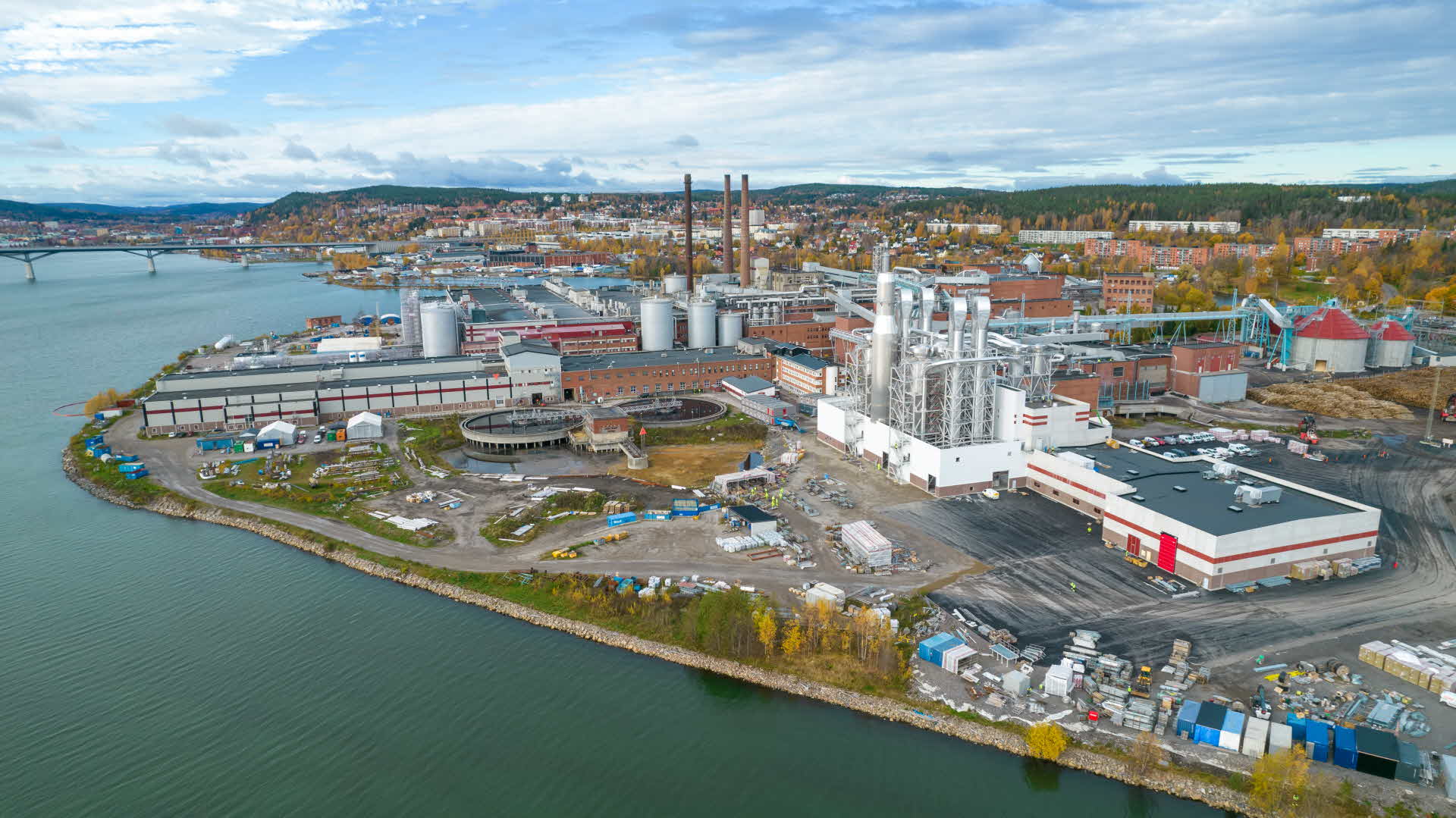
- MEDIA
- NEW PULP MILL IN SUNDSVALL
New pulp mill in Sundsvall
- Article
SCA is making a major investment in CTMP pulp, tripling its capacity from 100,000 tonnes a year to 300,000 tonnes, increasing the supply of sustainable materials on the world market for packaging and other products. “Now our customers can manufacture more climate-smart products, which replace products made from fossil-based materials,” says Kristina Enander, Director, SCA Pulp.
SCA has invested SEK 1.45 billion in a new plant for the manufacture of CTMP pulp (chemical thermomechanical paper pulp). The plant was commissioned at the end of 2022. CTMP is a tailored, bulky pulp that can be used for everything from cardboard to kitchen roll. Cardboard is the largest application, with end-products including electronics packaging and juice cartons.
“CTMP is used as an intermediate layer in cartons to improve stiffness and thickness. This layer ensures that juice cartons don’t crumple when you pick them up for example,” explains Enander and continues:
“We see demand for CTMP increasing globally and there are several reasons for that. Firstly, CTMP is a cost-effective alternative; it also offers quality advantages. In addition, sustainability is becoming increasingly important to consumers, so interest in climate-smart products is growing.”
Replacing plastics
When it comes to packaging, CTMP pulp primarily replaces plastic.
“Our customers are working a lot to innovate so that more plastic materials can be replaced by fibre-based, circular materials. We’re also strongly focused on innovation at SCA to ensure that our pulp is well suited for these sorts of applications,” says Hanna Penttilä, Sustainability Expert at SCA Pulp.
Opportunities also exist for CTMP pulp to replace materials that have a greater impact on the environment in segments such as insulation materials. CTMP can be used to replace stone wool, for example.
“This market is not that big at the moment, but more and more people are seeing the potential,” Penttilä says.
Aiming higher
The new CTMP facility has been built at the Ortviken industrial site in Sundsvall. Previously, SCA had its CTMP production at its Östrand pulp factory in Timrå, but those operations will be wound down when the new plant comes fully online.
“We plan to focus entirely on the production of sulphate pulp at Östrand. Just like CTMP, sulphate pulp is an important plastic substitute, especially for packaging,” says Enander.
A number of years ago, SCA made a multibillion-kronor investment in Östrand, which saw capacity more than double – and the amount of climate-smart raw materials on the world market substantially increase. Today, the Östrand facility has a capacity of 900,000 tonnes of sulphate pulp a year, making it the world’s largest production line for bleached softwood sulphate pulp.
“Moving production of CTMP to Ortviken opens up opportunities for the further expansion of sulphate pulp production at Östrand,” Enander adds.
Green district heating for an entire municipality
As the production of sustainable materials at Östrand has grown, the plant has been able to increase its deliveries of other climate-smart products. For example, it is a major producer of green electricity and district heating.
“The production of sulphate pulp generates a surplus of electricity equal to one per cent of Sweden’s total electricity consumption. We use of some of the electricity ourselves, while the rest goes into the grid where it replaces less sustainable types of electricity,” says Penttilä.
Excess heat from pulp production at Östrand also becomes district heating, which supplies the entire local municipality’s district heating network. A large proportion of the heat also goes to the Sundsvall grid, for which Ortviken also provides a large share of bio-based district heating.
Green products
SCA also sells a growing number of green products that are extracted as by-products from pulp production at Östrand, mainly tall oil and turpentine. Tall oil is a renewable raw material for biodiesel, while turpentine is used in the manufacture of cosmetics and as an additive in paint, for example. Again, sustainable products replace fossil products, which means that oil and coal can stay in the ground.
“Climate change is the great challenge of our time and we need to make a rapid and drastic reductions in our use of fossil materials. This is an area where the forest industry’s products have a key role,” concludes Penttilä.
Photo: Håkan Sjödin